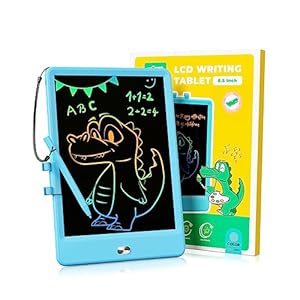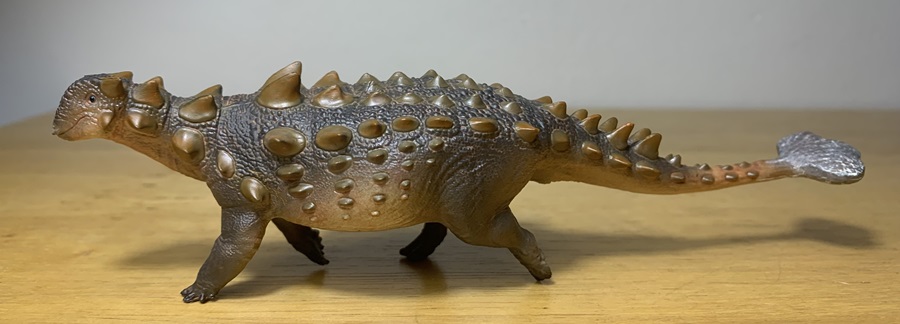
In 1971, Water Coombs published a paper titled The Ankylosauridae. In it, he argued that there was only one species of ankylosaurid living during the Campanian age of Late Cretaceous North America and synonymized Anodontosaurus, Dyoplosaurus, and Scolosaurus with Euoplocephalus. More recent papers would overturn Coombs’s paper, finding each of those genera to be valid, but the implications of that paper would be far reaching, especially in paleoart. For most of the time since that paper was published depictions of Euoplocephalus armor ended up being largely based on NHMUK R5161, the fantastically preserved Scolosaurus holotype. Very often, bits were used from other genera too, making many reconstructions of Euoplocephalus hybrids of various genera.

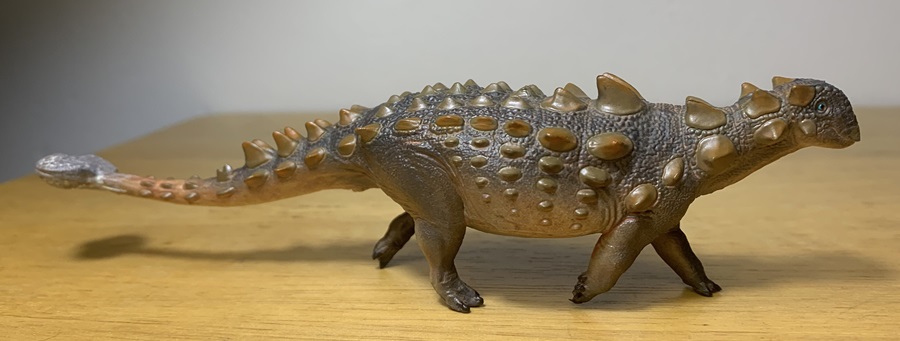
When I decided that I wanted to review the Euoplocephalus from Haolonggood I didn’t think I would have to take a deep dive into Campanian ankylosaurid taxonomy, but I was clearly mistaken. I debated how heavily I wanted to get into it but to do this figure justice I realized I couldn’t ignore it, much to my dismay. Afterall, how do we know the Haolonggood Euoplocephalus is a Euoplocephalus at all? A lot of chatter across the internet seems to suggest it is a Scolosaurus.
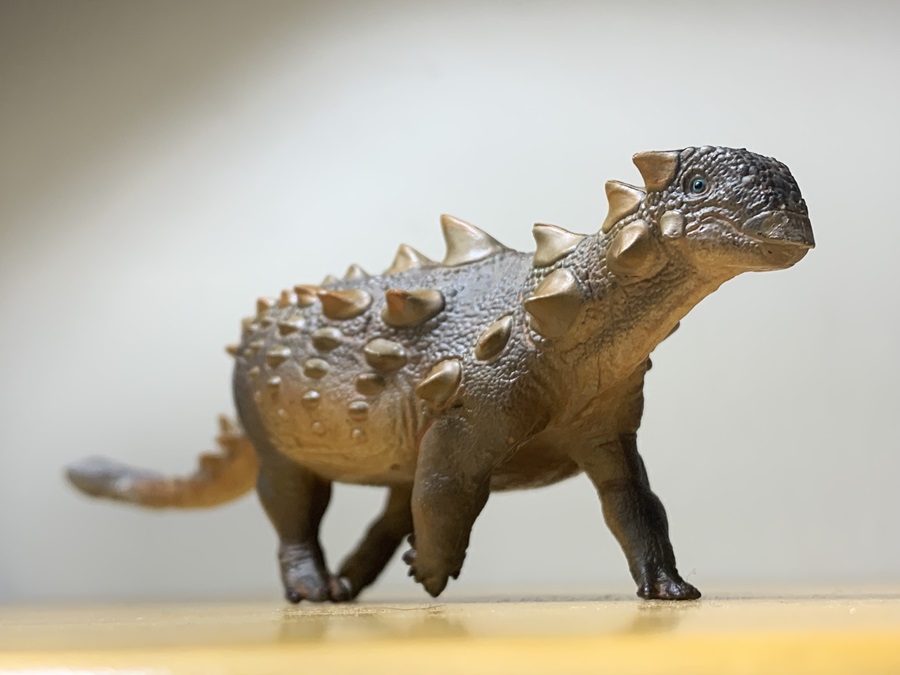
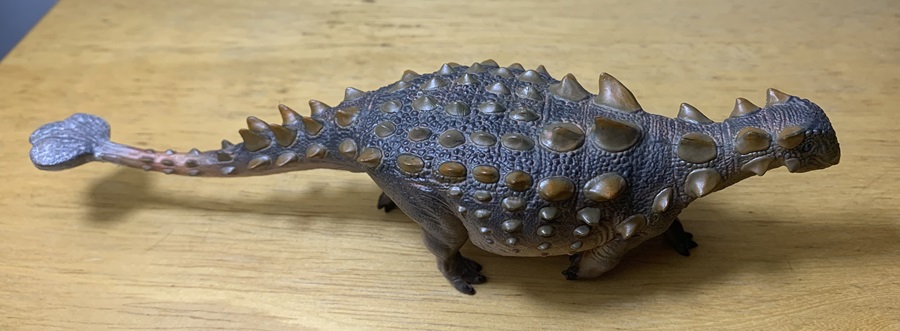
In identifying this toy as Euoplocephalus it’s important to know that each genus once lumped with it has a distinctive arrangement of caputegulae (armor on the head). For the sake of time and sanity (the head is smaller than my fingertip) I’m only going to focus on the most obvious head ornamentation, the squamosal horns. Scolosaurus has long backswept squamosal horns while Euoplocephalus has pointed pyramidal squamosal horn. I think the head of the Haolonggood model matches better with Euoplocephalus.
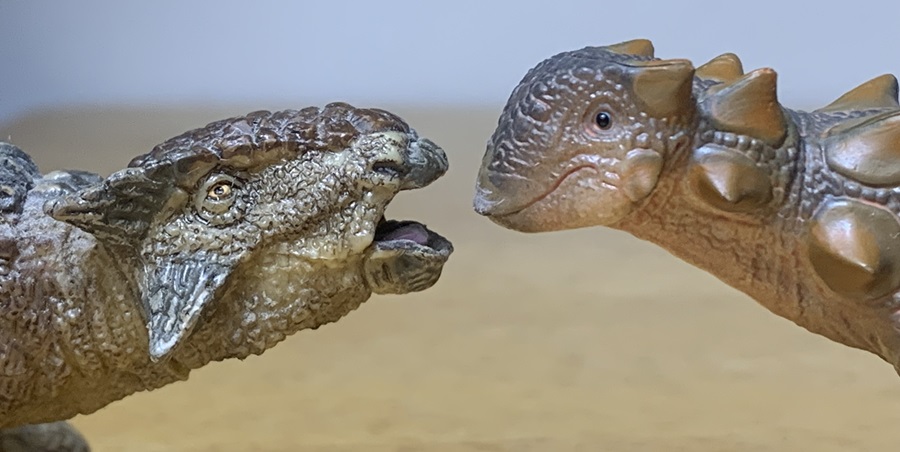
The head shape is also appropriately wide, blunt, tall, and sloping, with a triangular shape when viewed from above. The nostrils are accurately forward facing, unlike those in Ankylosaurus which are on the sides of its head. A cluster of what might be osteoderms can be seen between the squamosal and quadratojugal horns. If they’re meant to be osteoderms then their presence is inaccurate. Scolosaurus and Anodontosaurus would have had them there, but not Euoplocephalus. I wouldn’t consider their presence diagnostic though. Haolonggood was probably just putting osteoderms there to add detail and not giving it as much thought as some collectors might.
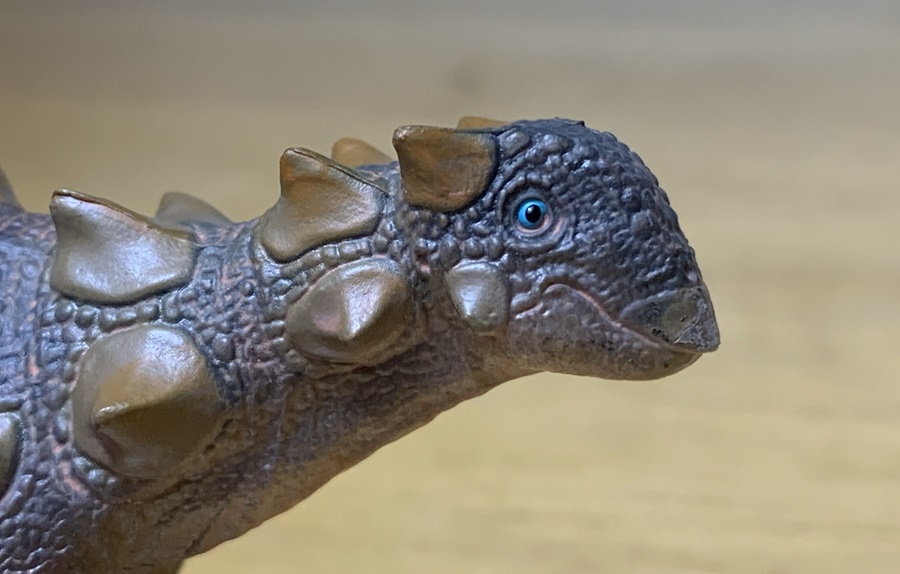
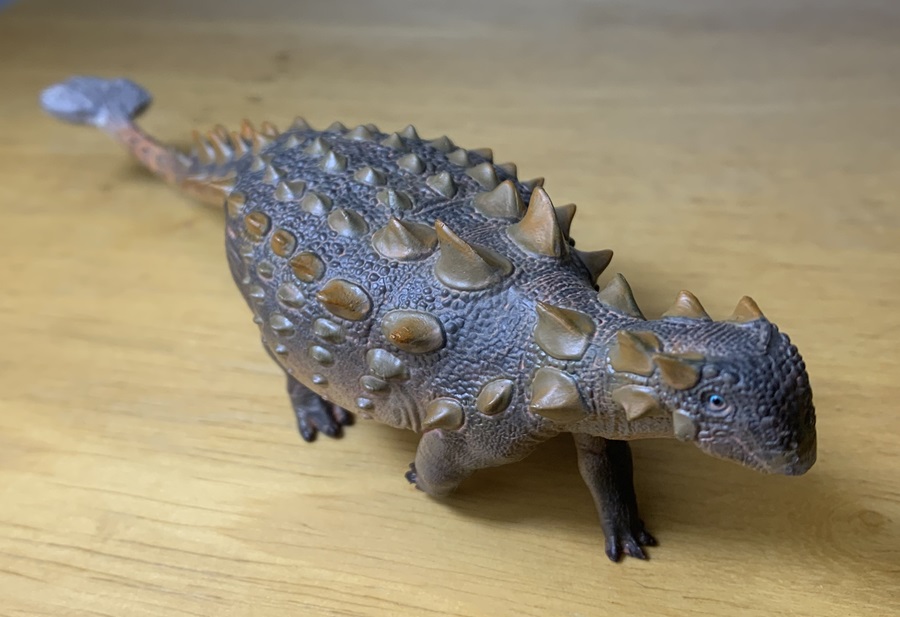
More importantly than the head in diagnosing this figure as Euoplocephalus is the structure of the cervical half rings on the neck. In Scolosaurus, the two medial osteoderms are somewhat flat and possess a centrally located bump. In Euoplocephalus, these same two osteoderms are keeled and spiked. Based on that, this model represents Euoplocephalus. I must note however that the figure only has four osteoderms on each cervical half ring when it should have six. Perhaps Haolonggood referenced Gregory Paul’s skeletal drawing, which also includes only four osteoderms per half ring.
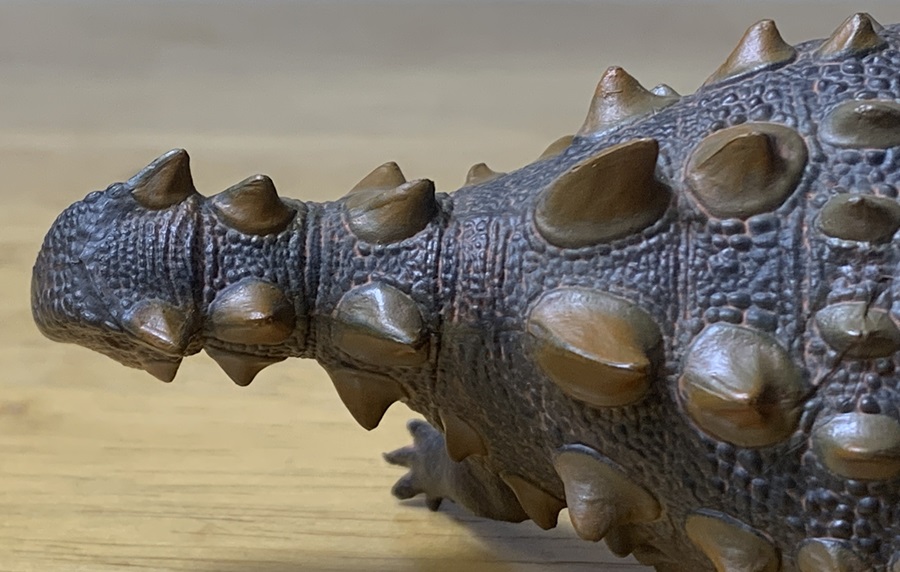
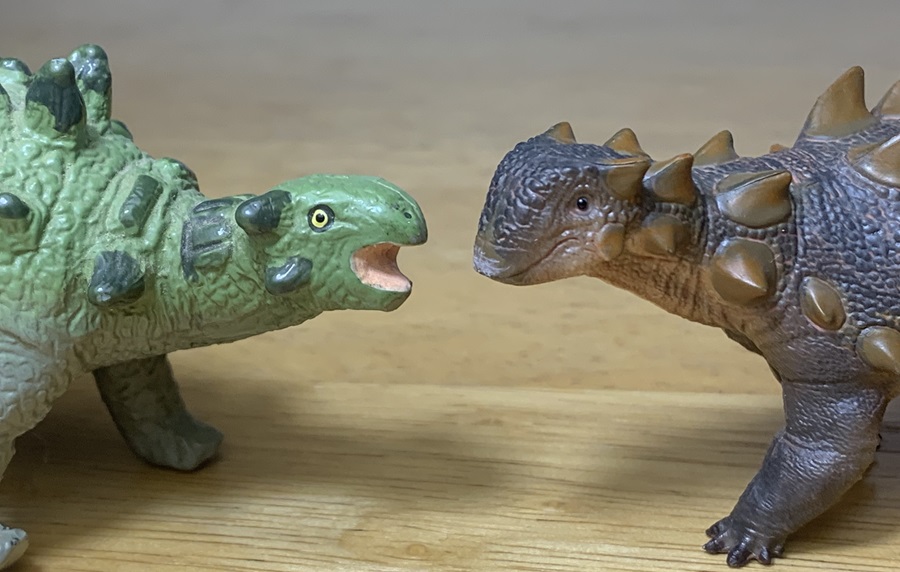
Speaking of Gregory Paul, his influence on this model can also be seen with the tail club. In Paul’s skeletal, the Euoplocephalus has an axe shaped club with pointed sides. This is like the tail club of Anadontosaurus, not Euoplocephalus, which would have had a round tail club.
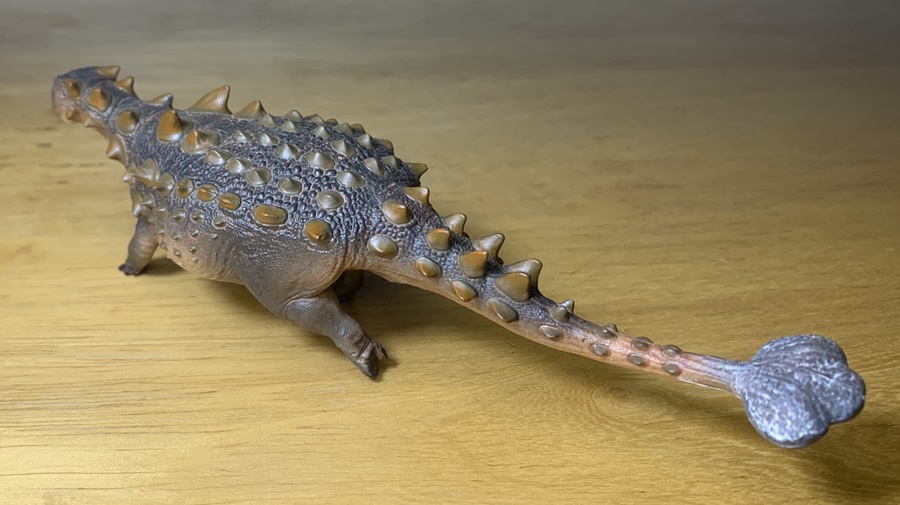
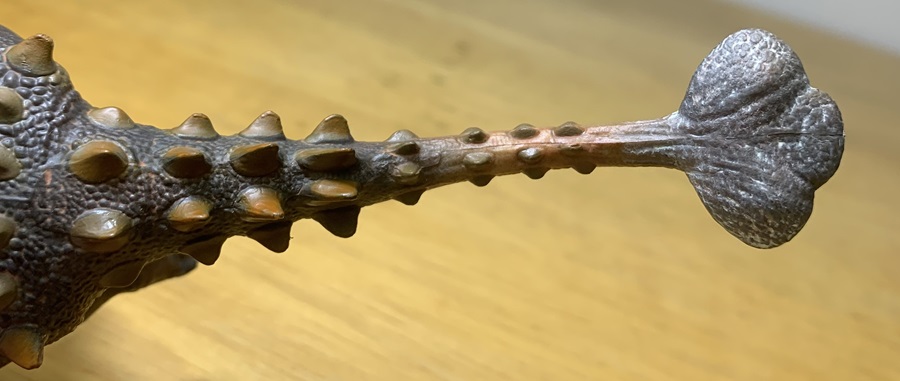
I’m about done addressing accuracy, but it is worth mentioning that the overall physiology of the toy is correct for an ankylosaurid. It has a squat, wide, flattened body. The limbs are surprisingly dainty for such a solidly built animal. The forelimbs possess five digits with the last two reduced. They should also be clawless but aren’t, although they’re too small to be worth caring about. Three digits are sculpted on the hindlimbs. The “handle” of the tail is appropriately thin and stiffened. All the fine details that make ankylosaur toys fun to hold and examine are there, with lots of smaller osteoderms packed in between the larger ones.
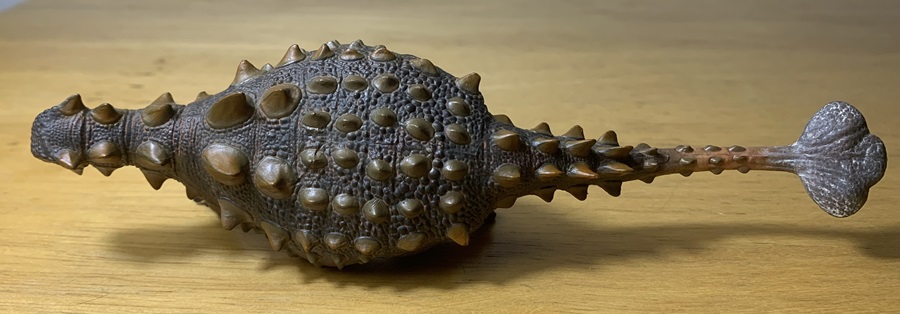

There are other things we could scrutinize, like the small osteoderms at the base of the large osteoderms, but this review is already long, and we’ve only discussed identification and accuracy so far. The most important features have been addressed: the head, cervical half rings, and tail club.
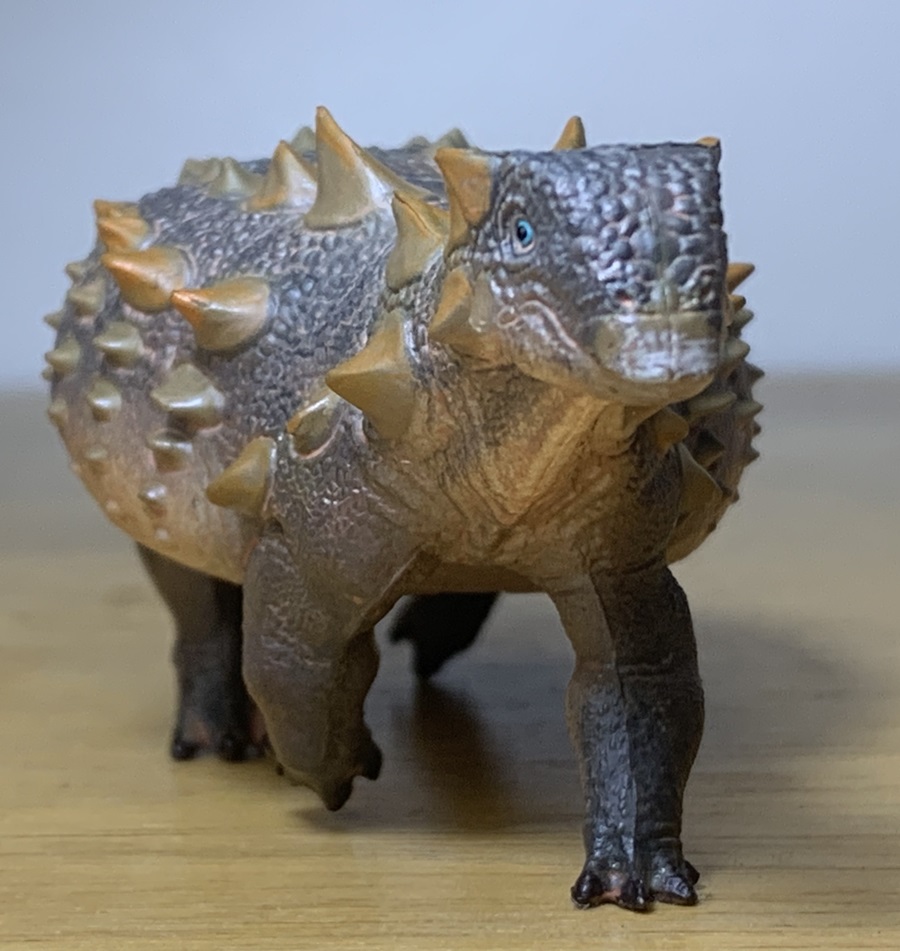
Full disclaimer, while I did do a lot of research to prep for this review, I am not a paleontologist, do not like pretending to be one, and ankylosaurid taxonomy is a mess. If I got any details wrong or missed something, feel free to mention it in the comments. Also, this endeavor would have been impossible without Victoria Arbour’s Pseudoplocephalus blog (here, here, and here).
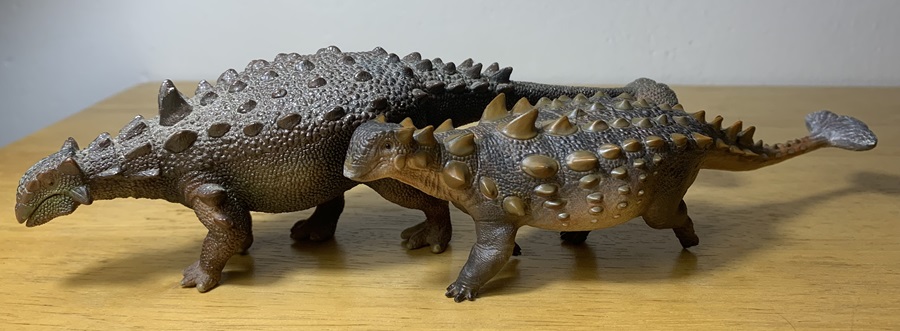
Euoplocephalus is estimated to have measured 17’ (5.3 meters) long. The Haolonggood figure measures about 6.75” (17 cm) which puts the figure at about 1/30 in scale. The figure is advertised as being 1/35 in scale. The figure is positively adorable, happily trotting along with two limbs kicking off the ground. The head is lifted high and alert with a cute little smirk and a worry-free expression. I’ve seen some people criticize the smile and wonder why it’s there, but I don’t think it’s meant to be a smile, the dinosaur just has a naturally upturned mouth. Lots of animals look like they’re perpetually smiling but aren’t really, like dolphins and turtles.
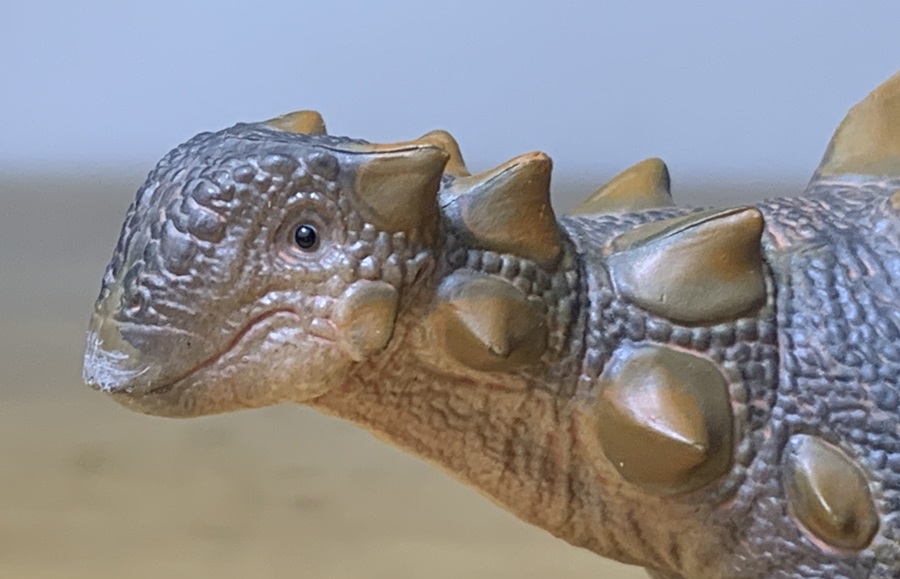
This figure comes with two different paint jobs. There’s a dark one with dull orange osteoderms and an orange one with dark osteoderms. Both look great but I somewhat randomly went with the darker figure. It is dark gray over the back with a pink wash. The flanks and underside transition to light pink. The handle of the tail is also pink. Most of the smaller osteoderms are brown with the larger ones being brown at the base and more orange towards the tips. The tail club is gray with a white wash over it, and the toenails are black. The eyes are blue with black pupils and appear wide open and alert, which adds to the cute factor. The paint application is excellent, and the paintjob suits the figure well even if it is a bit conventional.


Aesthetically, the Haolonggood Euoplocephalus is a well crafted and charming little toy with a lot of character. Scientifically, it’s not perfect (I blame Greg Paul), but this is still the best Euoplocephalus available. The Haolonggood Euoplocephalus is currently in production and retails for about $20.
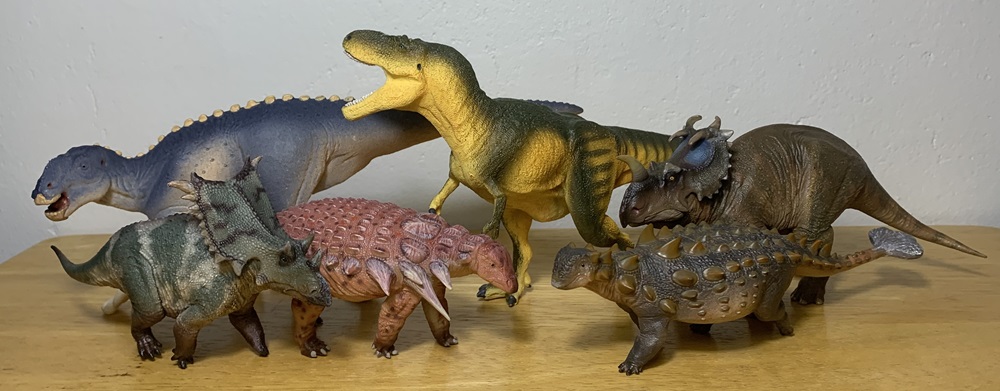
Support the Dinosaur Toy Blog by making dino-purchases through these links to Ebay and Amazon. Disclaimer: links to Ebay.com and Amazon.com on the Dinosaur Toy Blog are often affiliate links, when you make purchases through these links we may make a commission
Trending Products



